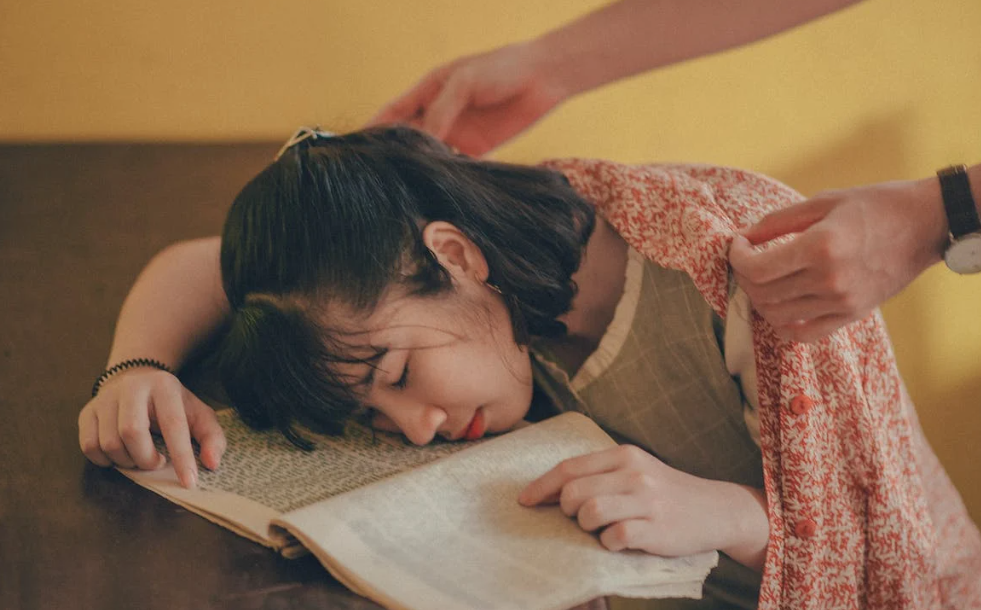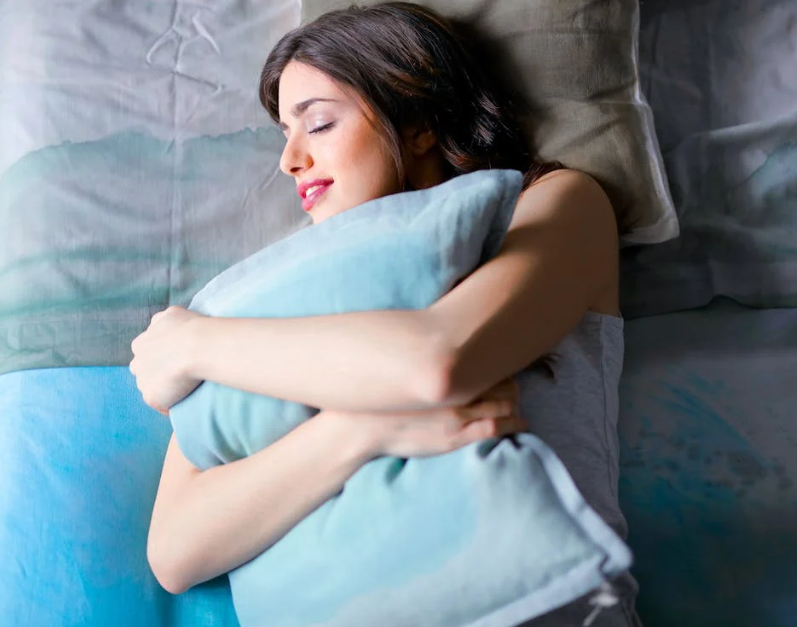Can Hypnosis Help With Sleep?
Learn about hypnosis is a natural form of mind-body intervention that induces profound relaxation.

Selfpause Affirmation App
Download the app to get 1,000’s of affirmation meditations and everything you need to write, record and listen to your own.
Depending on the person who is in question, it may be possible for hypnosis to help them sleep. However, if the person is suffering from a sleep disorder, it may be more difficult for hypnosis to help them sleep.
Side effects of hypnosis on sleep

Using hypnosis to help with insomnia and other sleep disorders is relatively safe, though it may not work for everyone. A growing body of research has evaluated the benefits and side effects of hypnosis for sleep.
Hypnosis is a natural form of mind-body intervention that induces deep relaxation. It can be a useful tool for managing stress, anxiety, pain, and insomnia. It may also help people with mood disorders or post-traumatic stress disorder.
Incorporating hypnosis into a sleep program is relatively simple. It requires a few steps. A trained professional should lead the patient through the process. During hypnosis, the patient will be asked to visualize calming imagery. The hypnotherapist will also ask the patient to slowly become more aware. After a few minutes, the patient will be guided out of the hypnotic state.
A large percentage of studies using hypnosis for sleep have positive results. The studies were generally small. Some were randomized controlled trials. Some used individual sessions, while others were audio recording only. These studies also showed modest sleep benefits. The effectiveness of the hypnosis was similar to that of biofeedback treatment or control hypnosis.
The positive studies had similar average sample sizes, with a mean of 36.4 +- 14.6, and a mean duration of 2.9 +- 2.2 hours. In contrast, negative studies had average sample sizes of 29.5 +- 7.5, and a mean duration of 4.7 +- 0.5 hours.
Studies that reported positive results had relatively low risk of bias. Most of the studies used an active control group. The average number of sessions for the positive studies was three to four. However, the amount of sessions required for effective treatment is still unclear.
Hypnosis for sleep is a cost-effective intervention. A good night’s sleep is vital for both physical and mental restoration. Using hypnosis for sleep can help improve sleep quality and promote better sleep hygiene. It may also help people to overcome stress, anxiety, and pain.
If you are considering hypnosis for sleep, consult with a health professional first. Talk to your doctor about your sleep symptoms, and rule out any underlying health conditions. You may also want to avoid using electronic devices before bedtime.
Research on hypnosis for sleep disorders

Various studies have investigated the effectiveness of hypnosis for sleep disorders. Hypnosis is a powerful therapy that can be applied to help with sleeping problems, but it is important to remember that hypnosis is not mind control. It can be combined with other proven therapies for sleep disorders to help improve sleep.
Studies have reported positive and negative results for hypnosis for sleep disorders. Overall, positive studies showed a higher rate of sleep improvement than negative studies. Those reporting positive results tended to report longer sleep duration and fewer sleep disturbances.
However, a small number of studies reported negative results. In two studies, no effect was observed on sleep. The reasons for this are unclear. These studies did not include a sleep diary or parent observation.
Among the positive studies, 41% of patients reported somatic complaints such as headaches, functional abdominal pain, and habit coughs that responded to hypnosis. These results are similar to those reported in behavioral interventions for sleep disturbances in children.
The studies included in this review had similar average sample sizes. They also reported similar average intervention durations. However, the methodological quality of studies reporting positive results was higher than those reporting negative results.
In the most high quality studies, active control groups were used. However, studies reporting negative results used control groups and had a smaller sample size than those reporting positive results.
The average number of sessions required to achieve success was less than previously thought. However, the debate over the minimum number of sessions needed to achieve an effective treatment is still open.
For future studies, a systematic objective assessment of sleep patterns, including patients reporting sleep onset delay, is needed. In addition, a longer follow-up period and more detailed reporting of clinician qualifications in hypnosis are recommended.
Hypnosis for sleep disorders is a promising therapy that should be further investigated. Although the research on hypnosis for sleep disorders has been limited, it appears that the technique is safe. However, if you are considering hypnosis for sleep problems, talk to your doctor first to rule out underlying health problems.
Side effects of hypnosis for self-love

Several studies have found that self-hypnosis helps to improve one’s self-esteem. It can also help people overcome stress, anxiety, and other negative feelings.
Hypnosis can be beneficial for people who suffer from chronic pain. For instance, research has shown that it can improve pain management for people with cancer. It can also help people who suffer from migraines.
Another study found that hypnosis can reduce the side effects of chemotherapy. It can also help with pain management for people who are undergoing surgery or childbirth. It can also help people cope with the pain of fibromyalgia.
A study in South Africa examined the effects of hypnosis on college students’ self-perceptions. It found that self-hypnosis was effective in improving students’ self-esteem.
In the same study, self-hypnosis was also effective in helping college students to better manage pain. It can also help people improve their sleep. Hypnosis can help people cope with pain from migraines, childbirth, and surgery. It can also help people overcome toxic stress.
The hypnosis process is often described as a trance-like state. It is not a natural state. However, it is not a dangerous one. It is also not mind-controlling, and it can be done safely by a trained professional.
Self-hypnosis for self-love is a convenient and low-risk approach to self-help. However, the process does have its downsides. Some side effects include headache, insomnia, and anxiety.
In addition, it may not be a good choice for people with severe mental health issues. It may also be inappropriate for people who use alcohol or drugs.
Self-hypnosis for self-love can help people realize their dreams and goals. It can help people develop better sleep habits and break bad habits. It can also help people increase their self-esteem and improve their overall well-being.
Aside from helping people improve their self-esteem and reduce stress, hypnosis can also be used to help people overcome phobias and other negative feelings. This can be helpful for people with a number of ailments, including migraines, cancer, fibromyalgia, and tension headaches.
Whether you decide to use self-hypnosis for self-love or not, it is important to keep an open mind. While there are some positive side effects, it is important to remember that it is not a magic bullet.
Safety of hypnosis for sleep
Using hypnosis for sleep can be a safe way to experience a deep, restful sleep. However, the exact mechanism of hypnosis is not well understood. There have been some negative effects reported in some studies. However, they are generally transient.
Some people are more sensitive to hypnosis than others. It is important to find the right time to use sleep hypnosis. If you have trouble sleeping, it is important to seek the advice of a doctor. Also, if you have a mental health condition, talk to your doctor before using hypnosis.
Studies of hypnosis for sleep have been conducted in both adult and adolescent populations. However, there is a lack of evidence regarding the effectiveness of hypnosis for sleep in treating long-term sleep disorders. In addition, the studies that have been conducted have been small.
Some studies have found that hypnosis can increase the length of time you spend in a deep, restful sleep. However, more research is needed to confirm this.
Studies have also shown that hypnosis can help with anxiety and pain management. It may also be helpful in breaking bad habits. However, it is important to discuss your concerns with your therapist before beginning treatment.
Studies on the safety of hypnosis for sleep have found that it is generally safe when it is performed by a trained professional. However, the incidence of adverse effects may vary based on the study tasks, the recommendations of the hypnotist, and the characteristics of the experimental situation.
One study found that sleep hypnosis was more effective when it was performed in the morning. This is because hypnosis works to relax the body and mind. Another study found that it was more effective to sleep during the mid-morning.
In some cases, hypnosis has been found to be effective in breaking bad habits. It can also be helpful in improving muscle relaxation. However, it is important to practice regularly and gradually increase the number of sessions.
Studies have found that people who are highly suggestible are more likely to benefit from hypnosis. However, about one-quarter of the population is not suggestible.
Our Top FAQ's
Hypnosis is a state of deep relaxation in which the person becomes more open to suggestion and is more receptive to changing their thoughts and behaviors. In the context of sleep, hypnosis can be used to help individuals relax and let go of racing thoughts or stress that may be preventing them from falling asleep or staying asleep. Some people may be more susceptible to hypnosis than others, and the effectiveness of hypnosis as a treatment for sleep issues may vary from person to person.
There is some evidence to suggest that hypnosis may be a safe and effective treatment for sleep disorders, such as insomnia. However, more research is needed to fully understand the potential benefits and risks of using hypnosis for sleep issues. It is important to note that hypnosis should not be used as a sole treatment for sleep disorders and should always be administered by a trained professional.
There are generally few risks associated with hypnosis when it is administered by a trained professional. However, some people may experience discomfort or anxiety during the hypnosis session, and some may not respond well to hypnosis at all. It is also possible for individuals to experience negative side effects after the hypnosis session, such as headache or fatigue.
Hypnosis is typically administered by a trained hypnotherapist or other mental health professional. The session may be conducted in person or remotely, such as over the phone or via video conference. During the session, the hypnotherapist will guide the person into a state of deep relaxation and suggest new ways of thinking or behaving that may help them sleep better. The hypnotherapist may also provide the person with tools and techniques, such as self-hypnosis or relaxation techniques, that they can use on their own to improve their sleep.
Yes, hypnosis can be used in combination with other treatment methods for sleep disorders. In fact, research has shown that combining hypnosis with other treatment approaches, such as medication or cognitive-behavioral therapy (CBT), may be more effective than using any one treatment method alone. It is important to work with a healthcare provider or mental health professional to determine the best treatment approach for an individual’s specific sleep disorder and needs.
